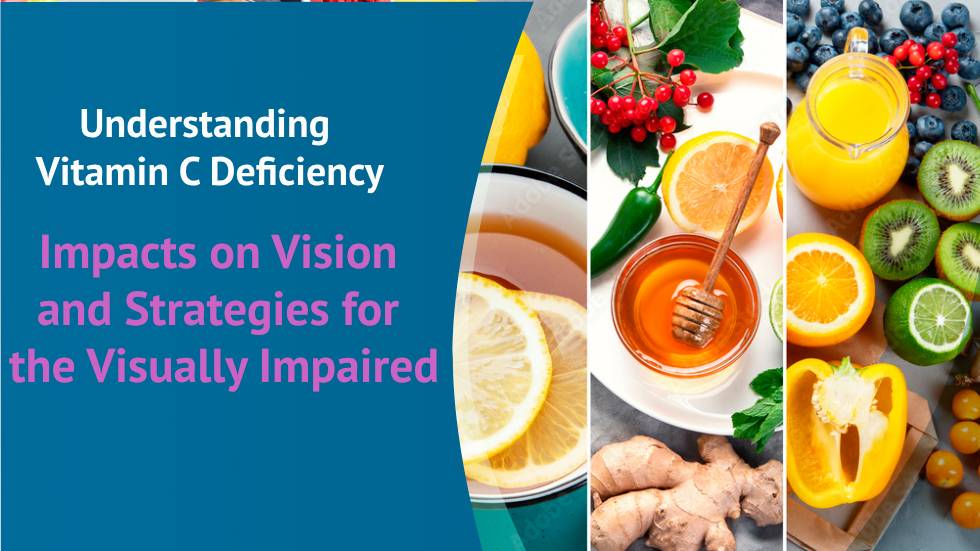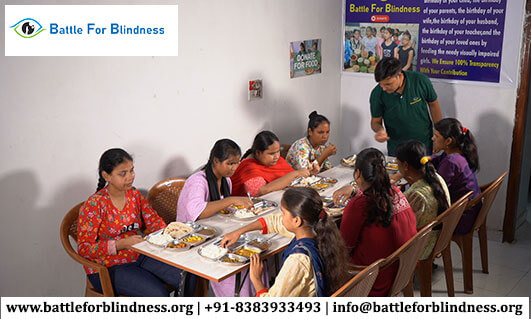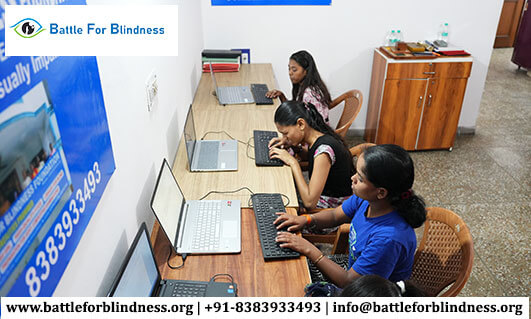
For the visually impaired, maintaining good health goes beyond managing vision loss—it also involves strengthening the immune system to prevent illnesses that could further impact their well-being.
One key nutrient that plays a significant role in both boosting immunity and supporting eye health is Vitamin C. This powerful antioxidant not only helps protect against common colds and infections but also contributes to overall eye health, making it an essential part of the diet for those with visual impairments.
The Role of Vitamin C in Immune Health
Vitamin C, also known as ascorbic acid, is a vital nutrient that supports the immune system by stimulating the production of white blood cells, which are crucial for fighting infections. It also helps in the production of antibodies, proteins that neutralize harmful pathogens.
For individuals with visual impairments, a strong immune system is particularly important as it helps in preventing illnesses that could further complicate their condition or limit their independence.
Key Benefits of Vitamin C for Immunity:
Antioxidant Protection: Vitamin C acts as an antioxidant, protecting cells from damage caused by free radicals—unstable molecules that can harm immune cells and lead to chronic diseases.
Wound Healing: Vitamin C is essential for the production of collagen, a protein that aids in wound healing. This is particularly beneficial for visually impaired individuals who may experience minor injuries more frequently due to mobility challenges.
Enhanced Iron Absorption: Vitamin C helps improve the absorption of iron from plant-based foods, which is vital for preventing anemia—a condition that can exacerbate fatigue and decrease overall energy levels.
Vitamin C and Eye Health
Vitamin C is not only crucial for boosting immunity but also plays a significant role in maintaining eye health. As an antioxidant, it helps protect the eyes from oxidative stress, which can lead to various eye conditions, including cataracts and age-related macular degeneration (AMD).
Key Benefits of Vitamin C for Vision:
Prevention of Cataracts: Cataracts, a condition characterized by the clouding of the eye’s lens, can lead to further vision impairment. Vitamin C helps slow down the progression of cataracts by preventing oxidative damage to the lens.
Protection Against Age-Related Macular Degeneration (AMD): AMD is a leading cause of vision loss among older adults. Vitamin C, along with other antioxidants, has been shown to reduce the risk of developing AMD by protecting the retina from oxidative stress.
Support for Retinal Health: The retina, a light-sensitive layer at the back of the eye, relies on a high level of Vitamin C to function properly. Adequate levels of this vitamin help maintain the health of retinal cells, reducing the risk of vision loss.
Incorporating Vitamin C into Your Diet
Getting enough Vitamin C through diet is essential for both boosting immunity and supporting eye health. Fortunately, many delicious and accessible foods are rich in this nutrient.
Top Sources of Vitamin C:
Citrus Fruits: Oranges, grapefruits, lemons, and limes are excellent sources of Vitamin C. Consuming these fruits regularly can help meet daily Vitamin C needs.
Berries: Strawberries, blueberries, and raspberries are not only rich in Vitamin C but also provide additional antioxidants that benefit overall health.
Leafy Greens: Spinach, kale, and broccoli are packed with Vitamin C, along with other vitamins and minerals that support both immune and eye health.
Bell Peppers: These vibrant vegetables contain even more Vitamin C than citrus fruits, making them a great addition to salads, stir-fries, and snacks.
Practical Tips for the Visually Impaired
For visually impaired individuals, incorporating Vitamin C-rich foods into daily meals can be made easier with a few practical tips:
Meal Preparation Assistance: Utilize kitchen tools designed for the visually impaired, such as talking measuring cups and color-coded knives, to safely prepare Vitamin C-rich meals.
Smoothies and Juices: Blend fruits like oranges, strawberries, and spinach into a smoothie for a convenient and nutritious way to consume Vitamin C.
Frozen Fruits and Vegetables: Keep frozen berries and vegetables on hand for easy access to Vitamin C-rich ingredients that can be quickly added to meals.
Conclusion
Vitamin C is a powerful ally for the visually impaired, offering dual benefits of boosting immunity and supporting eye health. By incorporating Vitamin C-rich foods into their diet, visually impaired individuals can enhance their overall well-being, protect their vision, and maintain a strong immune system.
Whether through fresh fruits, leafy greens, or practical meal preparation tips, ensuring adequate Vitamin C intake is a vital step toward a healthier, more vibrant life.





